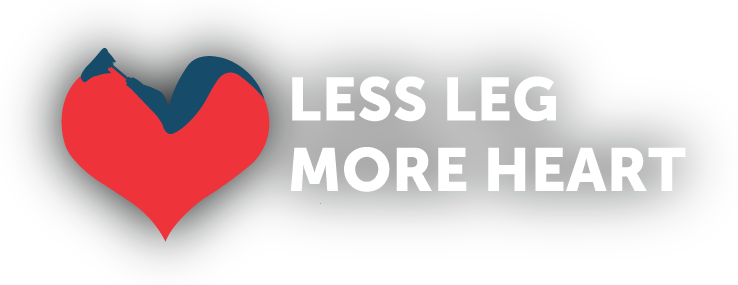You Are Not Alone: Mental Health and the Amputee Journey
Losing a limb is more than a physical change—it reshapes identity, daily routines, and the way a person connects with the world. For many, that journey comes with hidden struggles: research shows that 1 in 4 amputees experiences depression. Feelings of grief, frustration, isolation, or loss of purpose are common, and too often they go unspoken.
At Less Leg More Heart, we believe no one should have to navigate this path alone. That’s why our mission extends beyond prosthetics and ramps—we’re here to walk alongside amputees in heart, mind, and spirit.
The Power of Peer Support
Studies show that peer mentorship and support groups dramatically reduce the risk of depression among amputees. Why? Because connection builds hope. Hearing from someone who has “been there” reminds new amputees that adaptation is possible and life can still be full.
That’s why we run:
Heart to Heart Virtual Support Groups – safe, open conversations where amputees share struggles and victories.
Peer Mentorship Programs – connecting new amputees with those further along in the journey.
Ongoing Follow-up – because mental health isn’t a one-time conversation, it’s an ongoing relationship.
Resources for Those Struggling
If you are an amputee experiencing symptoms of depression—such as persistent sadness, withdrawal, changes in sleep, or loss of interest—know that help is available:
National Suicide Prevention Lifeline: Dial 988 for immediate help in the U.S.
Amputee Coalition Peer Support: amputee-coalition.org offers mentorship and mental health resources.
Psychology Today Directory: Find therapists who specialize in trauma, disability, or grief.
Less Leg More Heart Support Groups: Join our monthly Heart to Heart gatherings for community and connection.
Tips for Loved Ones Supporting an Amputee
When someone you care about is struggling, it can be hard to know what to do. Here are a few ways to help:
Listen without fixing. Sometimes the most powerful act is simply being present.
Encourage routine. Gentle prompts to engage in daily activities, exercise, or hobbies can lift mood.
Watch for warning signs. If your loved one talks about hopelessness, withdrawing completely, or harming themselves, encourage professional help immediately.
Stay patient. Healing takes time—emotionally and physically. Compassion and consistency go a long way.
Connect them to resources. Share information about peer groups, mental health providers, and community supports like Less Leg More Heart.
Together, We Heal
Depression after limb loss is real, but so is resilience. With support, mentorship, and connection, hope is restored. At Less Leg More Heart, our message is simple: you don’t have to walk this journey alone.
If you or someone you love is struggling, reach out. Healing starts with connection, and we are here to walk beside you.
✨ One heart. One story. One community—stronger together.

